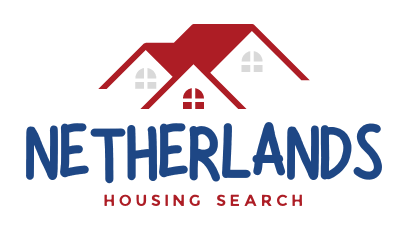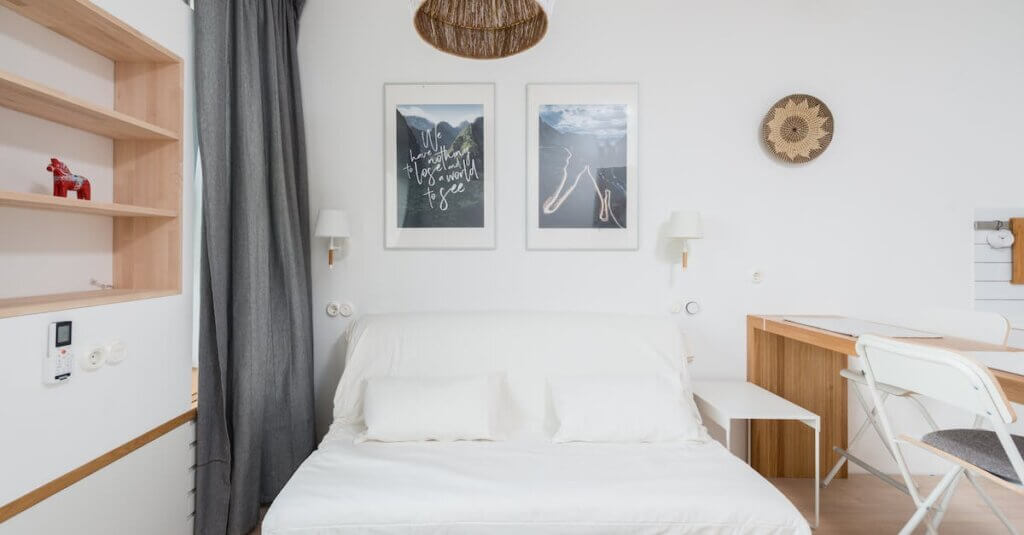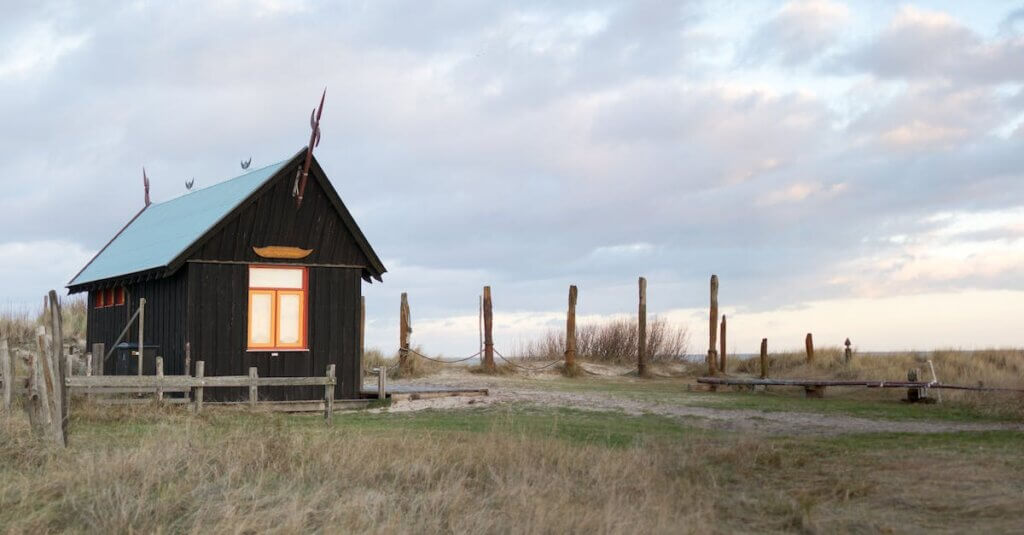⚡ Quick Navigate This Post:
Introduction
Overview of the Dutch housing market
The Dutch housing market is known for its unique characteristics and can be quite challenging for international expats to navigate. Understanding the key aspects of the market is crucial for those looking to rent or buy property in the Netherlands. One of the defining features of the Dutch housing market is the high demand for housing, particularly in popular cities like Amsterdam, Rotterdam, and The Hague. This high demand often leads to a shortage of available properties and increased competition among potential buyers or tenants. Additionally, the rental market in the Netherlands is highly regulated, with strict laws in place to protect both landlords and tenants. It is important for expats to familiarize themselves with these regulations to ensure a smooth rental process. Overall, navigating the Dutch housing market requires patience, research, and a good understanding of the local housing landscape.
Challenges faced by international expats
International expats face several challenges when navigating the Dutch housing market. One of the main challenges is the high demand for housing, which often leads to a shortage of available properties. This can make it difficult for expats to find suitable accommodation that meets their needs and preferences. Additionally, the rental market in the Netherlands is highly competitive, with many landlords requiring extensive documentation and proof of income. Expats may also face language barriers when dealing with real estate agents and landlords, as Dutch is the primary language spoken in the housing market. Lastly, the process of understanding and navigating the Dutch rental laws and regulations can be complex for expats who are unfamiliar with the system. Despite these challenges, with proper research and guidance, international expats can successfully navigate the Dutch housing market and find a suitable place to call home.
Importance of understanding the housing market
Understanding the housing market is crucial for international expats who are looking to settle in the Netherlands. The Dutch housing market operates differently from other countries, and having a clear understanding of its dynamics is essential to make informed decisions. By familiarizing themselves with the local housing market, expats can avoid potential pitfalls and find suitable accommodation that meets their needs and budget. Additionally, understanding the housing market allows expats to negotiate better deals and navigate the rental or buying process more effectively. Therefore, it is of utmost importance for international expats to gain a comprehensive understanding of the Dutch housing market before embarking on their relocation journey.
Renting a House
Types of rental properties
When it comes to rental properties in the Dutch housing market, there are several types to choose from. The most common type is the self-contained apartment, which consists of a private living space with its own kitchen and bathroom. These apartments are often found in multi-story buildings and are suitable for individuals or small families. Another popular option is a room in a shared house, where tenants have their own private bedroom but share common areas such as the kitchen and bathroom with other residents. This option is more affordable and allows for a sense of community. Additionally, there are also studio apartments, which are smaller self-contained units that combine the living, sleeping, and cooking areas into one open space. These are ideal for individuals or couples looking for a compact living space. Overall, the Dutch housing market offers a variety of rental property options to suit different preferences and budgets.
Finding a rental property
Finding a rental property in the Dutch housing market can be a challenging task, especially for international expats. The high demand for rental properties, coupled with limited availability, can make it difficult to find suitable housing. Additionally, the process of renting a property in the Netherlands often involves dealing with various requirements and paperwork, such as proof of income, references, and a rental agreement. It is advisable for expats to start their search early and utilize online platforms, real estate agents, and local networks to increase their chances of finding a suitable rental property. It is also important to be prepared financially, as rental prices in popular cities like Amsterdam and Rotterdam can be quite high. By being proactive, patient, and well-informed, expats can navigate the Dutch housing market and find their ideal rental property.
Understanding rental contracts
Understanding rental contracts is crucial for international expats navigating the Dutch housing market. Rental contracts in the Netherlands can be complex and may differ from what expats are accustomed to in their home countries. It is important to carefully review and understand the terms and conditions of a rental contract before signing, as it will outline the rights and responsibilities of both the tenant and the landlord. Key aspects to consider include the duration of the contract, rent payment terms, maintenance responsibilities, and any additional fees or charges. Seeking legal advice or assistance from a housing agency specialized in expat housing can be beneficial to ensure a smooth and fair rental experience.
Buying a House
Process of buying a house
The process of buying a house in the Dutch housing market can be complex, especially for international expats. It is important to understand the steps involved in order to navigate the process successfully. Firstly, it is advisable to engage the services of a real estate agent who specializes in working with international clients. They can provide valuable guidance and assist with finding suitable properties that meet your requirements. Once a property has been identified, the next step is to make an offer. In the Netherlands, it is common to negotiate the price, so it is essential to have a clear understanding of the market value and be prepared to negotiate. Once an offer is accepted, a purchase agreement is drawn up, outlining the terms and conditions of the sale. It is crucial to review this agreement and seek legal advice if necessary thoroughly. Finally, the completion process involves transferring the funds, signing the final documents, and taking possession of the property. It is recommended to engage the services of a notary to ensure a smooth and legally binding transaction. Overall, the process of buying a house in the Dutch housing market requires careful planning, research, and professional assistance to ensure a successful outcome.
Finding a real estate agent
Finding a real estate agent is an essential step when navigating the Dutch housing market as an international expat. A real estate agent can provide valuable guidance and expertise in finding the right property that meets your needs and budget. They have a deep understanding of the local market dynamics, and regulations, and can help you navigate the complexities of the rental or buying process. Additionally, a real estate agent can assist in negotiating the terms of your lease or purchase agreement, ensuring that you get the best deal possible. With their knowledge and network, they can also connect you with other professionals such as mortgage brokers, lawyers, and property inspectors, making the entire process smoother and more efficient. Whether you are looking for a rental property or planning to buy a house in the Netherlands, partnering with a reliable real estate agent is highly recommended to make your housing search and transaction a success.
Understanding the buying process
Understanding the buying process is essential for international expats looking to navigate the Dutch housing market. With its unique rules and regulations, it can be a complex and daunting task. However, by familiarizing yourself with the process, you can make informed decisions and ensure a smooth experience. The first step is to engage the services of a real estate agent who specializes in working with expats. They will guide you through the entire process, from searching for properties to negotiating the price and closing the deal. It is also important to understand the legal aspects of buying a property in the Netherlands, such as the role of a notary and the need for a mortgage advisor. By taking the time to understand the buying process, international expats can confidently navigate the Dutch housing market and find their dream home.
Financing Options
Mortgage options for expats
When it comes to mortgage options for expats in the Dutch housing market, there are a few key factors to consider. First, it’s important to understand that obtaining a mortgage as an expat can be more challenging compared to Dutch residents. Many banks have specific requirements and restrictions for expats, such as a minimum income level or a certain length of time living in the Netherlands. Additionally, expats may face higher interest rates or require a larger down payment. However, there are still several mortgage options available for expats, including mortgages offered by international banks or specialized lenders. It’s crucial for expats to do thorough research and seek expert advice to find the best mortgage option that suits their needs and financial situation.
Requirements for getting a mortgage
The requirements for getting a mortgage in the Dutch housing market can vary depending on your personal circumstances and the lender you choose. Generally, lenders will consider factors such as your income, employment status, credit history, and the amount of money you can contribute as a down payment. It is important to have a stable source of income and a good credit score to increase your chances of getting approved for a mortgage. Additionally, having a higher down payment can also help you secure a better interest rate and lower monthly payments. It is advisable to consult with a mortgage advisor or a financial expert to understand the specific requirements and options available to you.
Calculating affordability
Calculating affordability is a crucial step for international expats looking to navigate the Dutch housing market. It involves assessing your financial situation and determining how much you can afford to spend on housing expenses. Factors such as your income, monthly expenses, and desired savings goals all play a role in this calculation. Additionally, considering the cost of living in the Netherlands and the specific housing market trends in your desired location is essential. By carefully evaluating your affordability, you can make informed decisions and ensure that you find a housing option that suits your budget and lifestyle.
Neighborhoods in the Netherlands
Popular neighborhoods for expats
When it comes to finding the perfect neighborhood in the Netherlands as an expat, there are several popular options to consider. One of the most sought-after areas for expats is Amsterdam, known for its vibrant culture, picturesque canals, and diverse international community. The Jordaan neighborhood in Amsterdam is particularly popular among expats, with its charming streets, trendy cafes, and proximity to the city center. Another popular neighborhood in Amsterdam is De Pijp, which offers a lively atmosphere, a wide range of restaurants and bars, and a vibrant market. Rotterdam is also a top choice for expats, with its modern architecture, multicultural vibe, and affordable housing options. The Kralingen neighborhood in Rotterdam is especially popular, offering a mix of green spaces, waterfront views, and a vibrant student community. Other popular neighborhoods for expats in the Netherlands include The Hague, Utrecht, and Eindhoven, each offering its own unique charm and opportunities for international residents.
Factors to consider when choosing a neighborhood
When choosing a neighborhood in the Dutch housing market, there are several factors that international expats should consider. One important factor is the proximity to amenities such as grocery stores, schools, and public transportation. Living in a neighborhood with easy access to these amenities can greatly enhance the convenience and quality of life. Another factor to consider is the safety and security of the neighborhood. International expats should research the crime rates and safety measures in the area to ensure that they feel comfortable and secure in their new home. Additionally, it is important to consider the overall atmosphere and vibe of the neighborhood. Some neighborhoods may have a more lively and vibrant atmosphere, while others may be quieter and more family-oriented. By considering these factors, international expats can make an informed decision when choosing a neighborhood in the Dutch housing market.
Cost of living in different neighborhoods
The cost of living in different neighborhoods in the Dutch housing market can vary significantly. Some neighborhoods, such as Amsterdam’s city center or popular expat areas like The Hague’s Statenkwartier, tend to have higher living costs due to their central location and amenities. On the other hand, suburbs or less sought-after neighborhoods may offer more affordable housing options. It is important for international expats to research and compare the cost of living in different neighborhoods before making a decision on where to live. Factors such as rent, utilities, transportation, and daily expenses should be taken into consideration to ensure a comfortable and financially sustainable living situation.
Settling In
Registering with the municipality
When moving to the Netherlands as an international expat, it is important to register with the municipality. Registering with the municipality is a mandatory requirement for all residents, including expats. This process allows the government to keep track of the population and provide essential services. To register, you will need to visit the municipality’s office in your city of residence and bring necessary documents such as proof of identity, proof of address, and a valid residence permit. It is advisable to make an appointment in advance to avoid long waiting times. Once registered, you will receive a BSN (Burger Service Nummer), which is a unique identification number used for various administrative purposes, such as opening a bank account, applying for healthcare insurance, and enrolling in educational institutions. Registering with the municipality is an important step in settling down in the Netherlands and accessing various services and benefits available to residents.
Utilities and services
When it comes to utilities and services in the Dutch housing market, international expats have several options to consider. The most common utilities include electricity, water, and gas. In the Netherlands, it is common for tenants to be responsible for arranging and paying for their own utilities. This means that expats will need to contact the relevant service providers to set up accounts and ensure that their utilities are connected upon moving into a new property. Additionally, expats may also need to arrange for internet and cable TV services, which are typically separate from the basic utilities. It is important for expats to familiarize themselves with the different service providers and compare prices and packages to find the best options for their needs. It is also worth noting that some landlords may include certain utilities or services in the monthly rent, so it is advisable to clarify these details before signing a lease agreement.
Integration and cultural tips
Integration and cultural tips are essential for international expats navigating the Dutch housing market. Moving to a new country can be a challenging experience, but with the right knowledge and understanding, it can also be an exciting opportunity for personal growth. In order to integrate successfully, expats should take the time to learn about Dutch customs, etiquette, and cultural norms. This includes familiarizing themselves with the Dutch language, as well as understanding the local housing market and rental laws. Additionally, expats should be open to embracing the Dutch way of life, which includes cycling as a primary mode of transportation, enjoying Dutch cuisine, and participating in local festivals and traditions. By actively engaging in the culture and making an effort to connect with the local community, expats can create a fulfilling and enriching experience while navigating the Dutch housing market.



